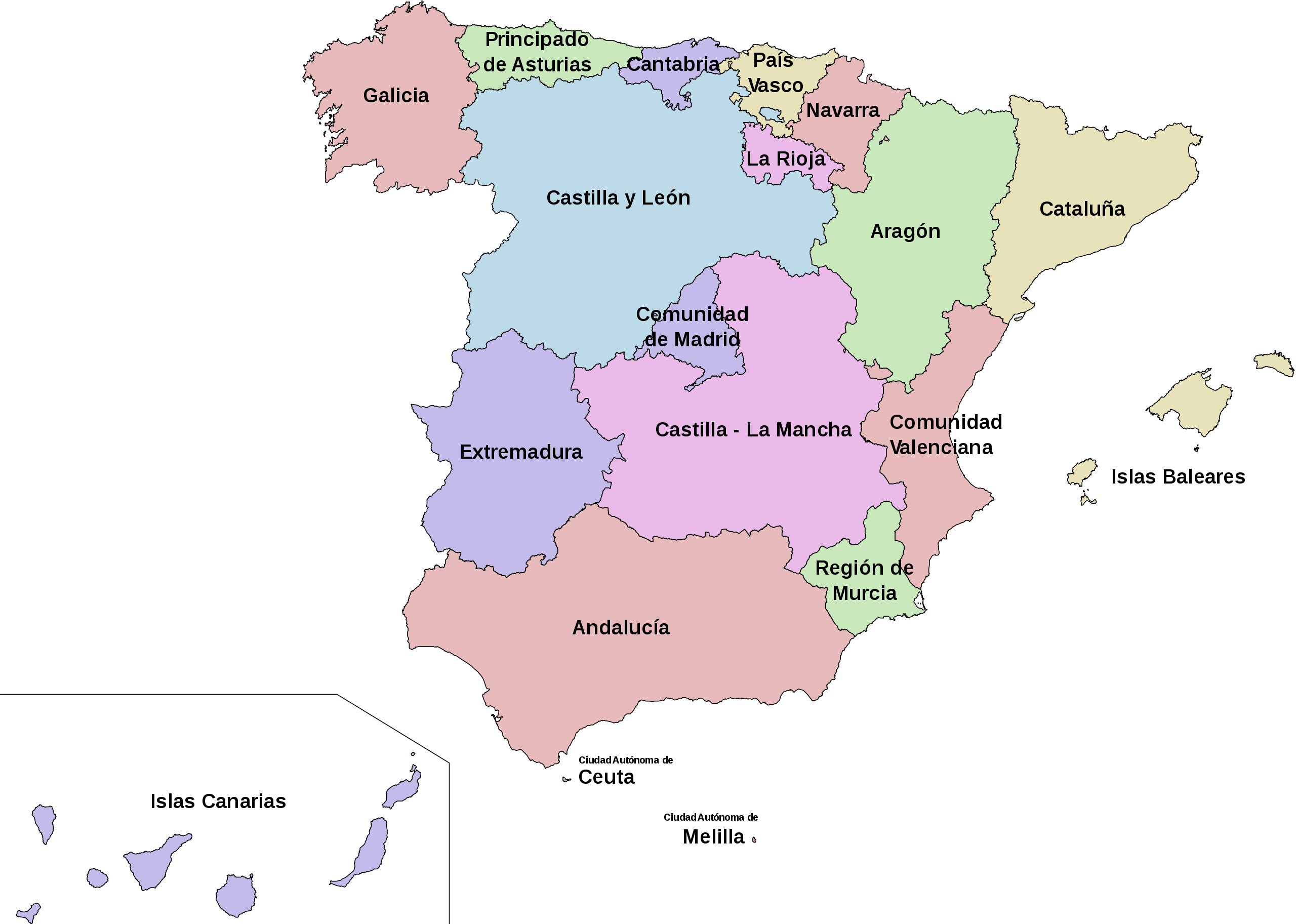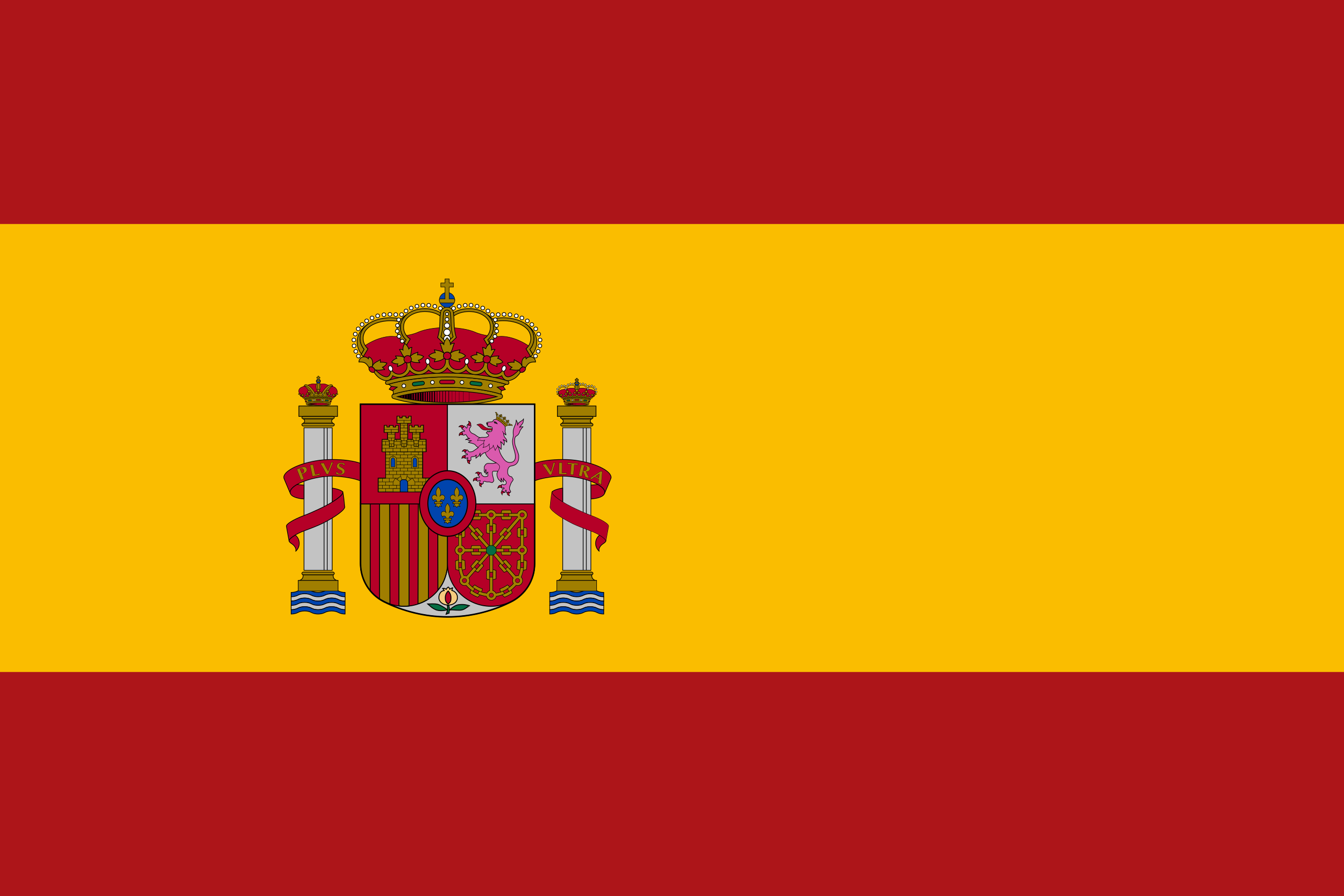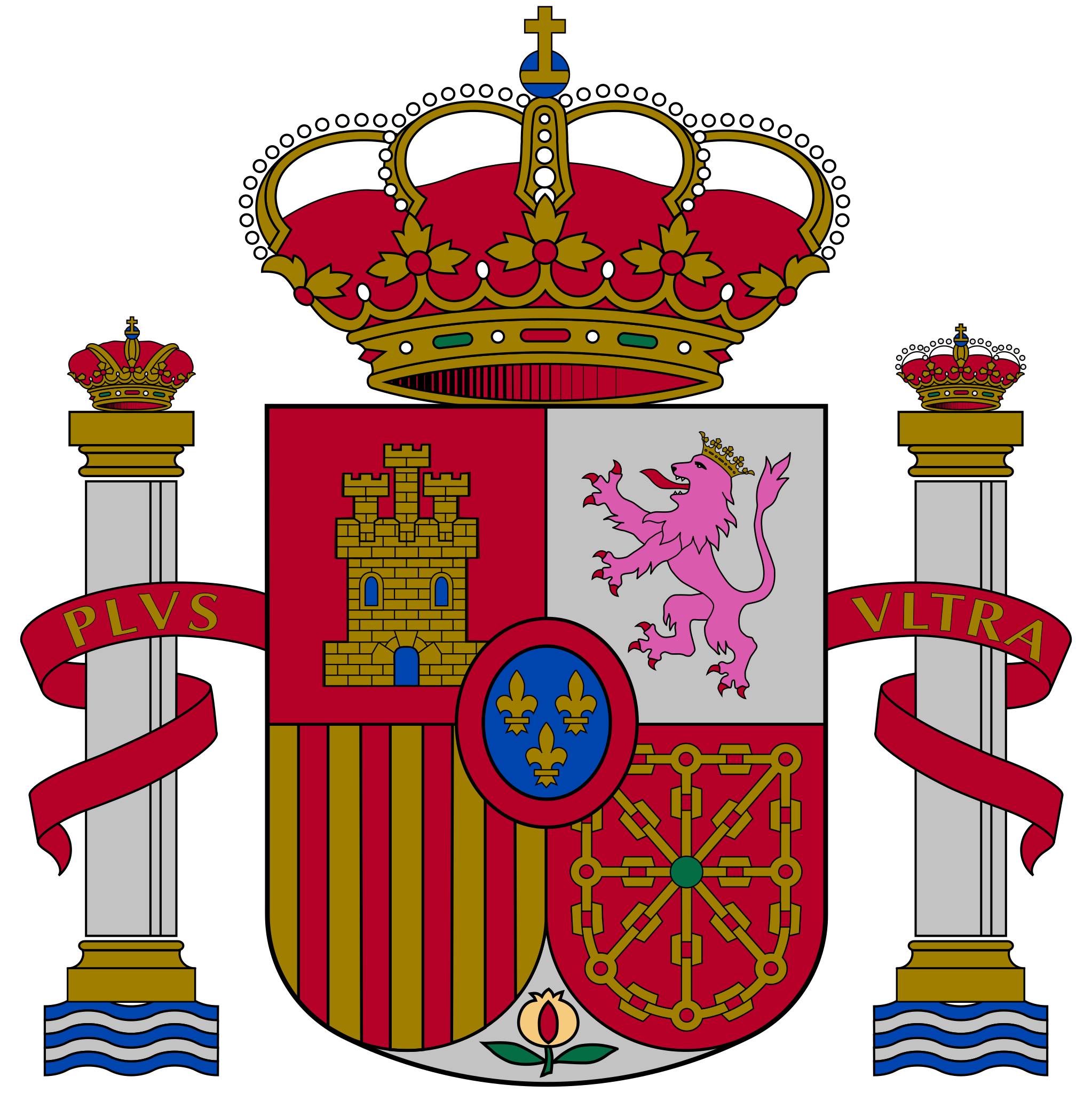(Main article links) Tag: Visual edit |
General-KJ (talk | contribs) (Minor expansion) Tag: Visual edit |
||
| Line 1: | Line 1: | ||
{{Infobox country|name=Kingdom of Spain|leader_title1=Monarch|official_languages=Spanish|mode_of_production=[[Capitalism]]|map_width=200|image_map=Spain map.png|leader_name2=[[Pedro Sánchez]]|leader_title2=Prime Minister|leader_name1=[[Felipe VI]]|government_type=[[Constitutional monarchy]]|native_name=Reino de España<br>Espainiako Erresuma<br>Regne d'Espanya<br>Reiaume d'Espanha|area_km2=505,990|population_census_year=2020|population_census=47,450,795|largest_city=[[Madrid]]|capital=[[Madrid]]|image_coat=Spanish COA.png|image_flag=Spanish flag.png|regional_languages=Basque<br>Catalan<br>Galician<br>Occitan}} | {{Infobox country|name=Kingdom of Spain|leader_title1=Monarch|official_languages=Spanish|mode_of_production=[[Capitalism]]|map_width=200|image_map=Spain map.png|leader_name2=[[Pedro Sánchez]]|leader_title2=Prime Minister|leader_name1=[[Felipe VI]]|government_type=[[Constitutional monarchy]]|native_name=Reino de España<br>Espainiako Erresuma<br>Regne d'Espanya<br>Reiaume d'Espanha|area_km2=505,990|population_census_year=2020|population_estimate=48,692,804|population_census=47,450,795|population_estimate_year=2024|largest_city=[[Madrid]]|capital=[[Madrid]]|image_coat=Spanish COA.png|image_flag=Spanish flag.png|regional_languages=Basque<br>Catalan<br>Galician<br>Occitan}} | ||
'''Spain''', officially the '''Kingdom of Spain''', is a country in [[Europe]]. | '''Spain''', officially the '''Kingdom of Spain''', is a country in [[Europe]] bordered by [[French Republic|France]], [[Portuguese Republic|Portugal]] and [[Principality of Andorra|Andorra]] as well as the [[United Kingdom of Great Britain and Northern Ireland|British]] overseas territory of [[Gibraltar]]. Spain is an [[Imperialism|imperialist]] country and is a member of both [[North Atlantic Treaty Organization|NATO]] and the [[European Union]]. | ||
== History == | == History == | ||
| Line 7: | Line 7: | ||
=== Habsburg rule (1516–1700) === | === Habsburg rule (1516–1700) === | ||
{{Main article|Monarchy of Spain (1516–1700)}} | {{Main article|Monarchy of Spain (1516–1700)}} | ||
=== Bourbon rule (1700–1808) === | |||
{{Main article|Kingdom of Spain (1700–1808)}} | |||
=== Bourbon restoration (1874–1931) === | |||
{{Main article|Kingdom of Spain (1874–1931)}} | |||
=== Second Republic === | === Second Republic === | ||
| Line 20: | Line 26: | ||
=== Constitutional monarchy === | === Constitutional monarchy === | ||
After Franco's death in 1975, Spain became a constitutional monarchy led by Prime Minister [[Adolfo Suárez]]. Under Suárez, Spain attended a summit of the [[Non-Aligned Movement]] in [[Republic of Cuba|Cuba]] in 1979. During this period, the [[Movement for the Self-Determination and Independence of the Canaries Archipelago]] (MPAIAC) carried out dozens of violent attacks in an attempt to gain independence for the [[Canary Islands]]. The [[United States of America|U.S.]] government told Spain that they had to join | After Franco's death in 1975, Spain became a constitutional monarchy led by Prime Minister [[Adolfo Suárez]]. Under Suárez, Spain attended a summit of the [[Non-Aligned Movement]] in [[Republic of Cuba|Cuba]] in 1979. During this period, the [[Movement for the Self-Determination and Independence of the Canaries Archipelago]] (MPAIAC) carried out dozens of violent attacks in an attempt to gain independence for the [[Canary Islands]]. The [[United States of America|U.S.]] government told Spain that they had to join NATO or the Canary Islands would secede from Spain. Less than 20% of Spaniards supported joining NATO, but it joined anyway in 1982 and the MPAIAC soon disappeared.<ref>{{News citation|author=Kahlil Wall-Johnson|newspaper=[[Monthly Review]]|title=‘Either you join NATO or we will make the canaries independent’|date=2022-06-10|url=https://mronline.org/2022/06/10/either-you-join-nato-or-we-will-make-the-canaries-independent/|archive-url=https://web.archive.org/web/20220614004322/https://mronline.org/2022/06/10/either-you-join-nato-or-we-will-make-the-canaries-independent/|archive-date=2022-06-14|retrieved=2022-06-17}}</ref> | ||
== References == | == References == | ||
[[Category:Countries]] | [[Category:Countries]] | ||
<references /> | <references /> | ||
[[Category:European countries]] | |||
[[Category:Imperialist countries]] | |||
[[Category:Global north]] | [[Category:Global north]] | ||
Latest revision as of 21:17, 27 June 2024
| Kingdom of Spain Reino de España Espainiako Erresuma Regne d'Espanya Reiaume d'Espanha | |
|---|---|
 | |
| Capital and largest city | Madrid |
| Official languages | Spanish |
| Recognised regional languages | Basque Catalan Galician Occitan |
| Dominant mode of production | Capitalism |
| Government | Constitutional monarchy |
• Monarch | Felipe VI |
• Prime Minister | Pedro Sánchez |
| Area | |
• Total | 505,990 km² |
| Population | |
• 2024 estimate | 48,692,804 |
• 2020 census | 47,450,795 |
Spain, officially the Kingdom of Spain, is a country in Europe bordered by France, Portugal and Andorra as well as the British overseas territory of Gibraltar. Spain is an imperialist country and is a member of both NATO and the European Union.
History[edit | edit source]
Habsburg rule (1516–1700)[edit | edit source]
See main article: Monarchy of Spain (1516–1700)
Bourbon rule (1700–1808)[edit | edit source]
See main article: Kingdom of Spain (1700–1808)
Bourbon restoration (1874–1931)[edit | edit source]
See main article: Kingdom of Spain (1874–1931)
Second Republic[edit | edit source]
See main article: Spanish Republic (1931–1939)
Military dictator Miguel Primo de Rivera was overthrown in 1930 and monarchist parties lost the 1931 elections. General Francisco Franco staged a coup in July 1936, which was supported by the military and bourgeoisie.[1]
Civil War[edit | edit source]
See main article: Spanish Civil War
During the 1936–1939 civil war in Spain, Catalonia led the left-wing resistance against Franco.[2]
Franco dictatorship[edit | edit source]
From 1939 to 1975, Spain was a fascist regime called the Spanish State, which was ruled by Francisco Franco. The Catalan language was banned during this period. Similar to Adolf Hitler and Benito Mussolini, Francisco Franco ruled his regime with a fascist dictatorship and the ideology of his dictatorship was called Falangism that combined Fascism with National Syndicalism, Monarchism, Spanish Ultranationalism and numerous other ideologies. [2]
Constitutional monarchy[edit | edit source]
After Franco's death in 1975, Spain became a constitutional monarchy led by Prime Minister Adolfo Suárez. Under Suárez, Spain attended a summit of the Non-Aligned Movement in Cuba in 1979. During this period, the Movement for the Self-Determination and Independence of the Canaries Archipelago (MPAIAC) carried out dozens of violent attacks in an attempt to gain independence for the Canary Islands. The U.S. government told Spain that they had to join NATO or the Canary Islands would secede from Spain. Less than 20% of Spaniards supported joining NATO, but it joined anyway in 1982 and the MPAIAC soon disappeared.[3]
References[edit | edit source]
- ↑ Nathalie Hrizi (2008-02-01). "Anarchism’s track record: What is militancy without a winning program?" Liberation School. Archived from the original on 2020-11-27. Retrieved 2022-08-28.
- ↑ 2.0 2.1 "Spanish government’s crackdown on Catalan referendum: Socialism, self-determination and class unity" (2017-10-04). Liberation News. Archived from the original on 2021-10-23. Retrieved 2022-12-24.
- ↑ Kahlil Wall-Johnson (2022-06-10). "‘Either you join NATO or we will make the canaries independent’" Monthly Review. Archived from the original on 2022-06-14. Retrieved 2022-06-17.

